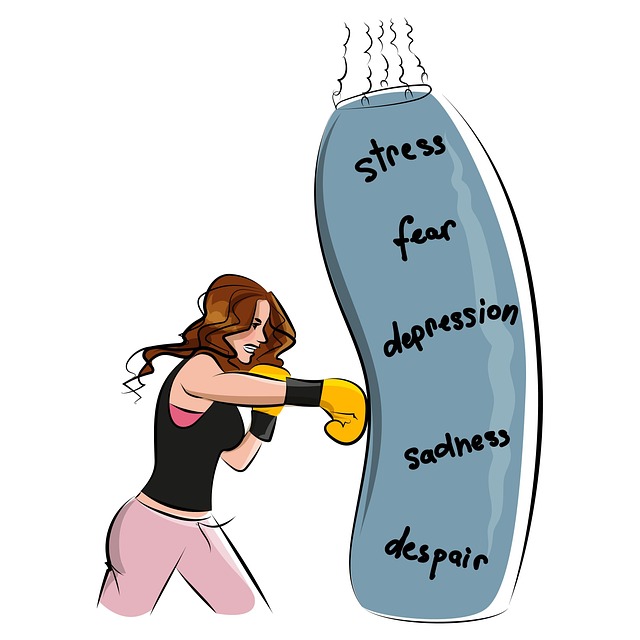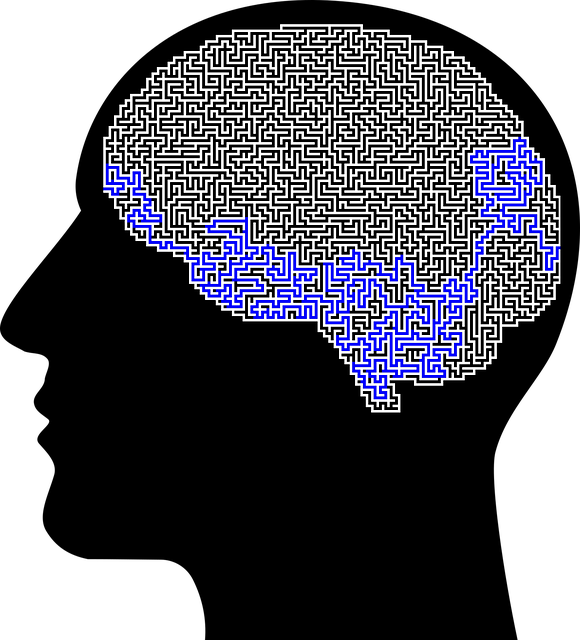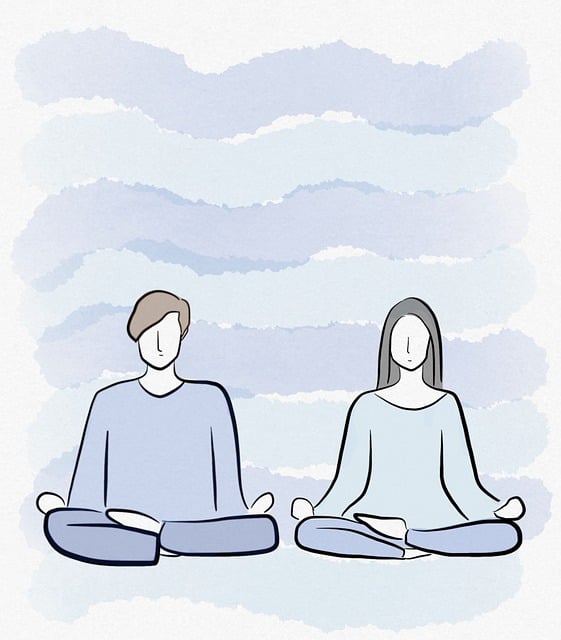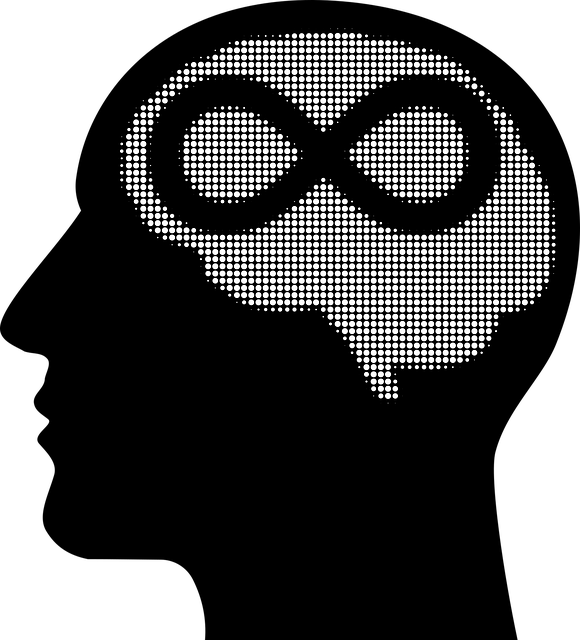Understanding mental wellness is key to developing effective self-care routines for navigating workplace issues and job stress, as offered by Castle Rock therapy services. By recognizing the link between thoughts, emotions, and behaviors, individuals can create holistic programs to identify triggers, build resilience, and maintain equilibrium. This involves personalized practices for physical, emotional, and psychological well-being, fostering a resilient mindset to cope with work stressors. Identifying workplace stressors is crucial, leading to strategies like setting boundaries, mindfulness, exercise, diet, and sleep to mitigate their impact. Consistent self-care routines, tailored to individual needs, enhance mental wellness, prevent burnout, and improve overall emotional well-being, even in challenging environments. Regular reflection and adjustments are essential for building resilience and navigating workplace stressors with ease.
Mental wellness is crucial for navigating today’s challenging Castle Rock workplace issues and job stress. This article guides you through developing a robust self-care routine, addressing key aspects of mental health management. We explore identifying stressors specific to your job role, crafting personalized strategies, incorporating effective self-care techniques, and maintaining consistency amidst challenges. By the end, you’ll be equipped with tools to enhance resilience and overall well-being in the face of Castle Rock workplace pressures.
- Understanding Mental Wellness and Self-Care
- Identifying Stressors in the Workplace and Job Role
- Crafting a Personalized Self-Care Routine
- Incorporating Effective Self-Care Strategies
- Maintaining Consistency and Overcoming Challenges
Understanding Mental Wellness and Self-Care

Understanding mental wellness is the first step towards creating a self-care routine that empowers individuals to navigate Castle Rock workplace issues and job stress therapy effectively. It involves recognizing the intricate connection between one’s thoughts, emotions, and behaviors, and how they collectively impact overall well-being. Mental health education programs designed with a holistic approach can equip folks with valuable tools to identify triggers, cultivate resilience, and maintain a sense of equilibrium in the face of daily challenges.
Self-care routine development takes center stage as a proactive strategy for enhancing mental wellness. By integrating tailored practices that prioritize physical, emotional, and psychological needs, individuals can foster a resilient mindset and better cope with workplace stressors. Mental wellness coaching programs focused on self-care routine development teach individuals to recognize when they need support, encourage them to set boundaries, and promote healthy habits that contribute to long-term mental health stability, thereby reducing the impact of Castle Rock workplace issues and job stress therapy.
Identifying Stressors in the Workplace and Job Role

Identifying stressors in your workplace and job role is a crucial step in developing a mental wellness self-care routine. The Castle Rock workplace issues and job stress therapy can provide valuable insights into specific triggers that contribute to burnout, anxiety, or depression. These stressors could range from heavy workloads, tight deadlines, lack of control over tasks, unclear expectations, to poor interpersonal relationships with colleagues or supervisors. Recognizing these pressures is the first step toward managing them effectively.
In professions like healthcare where burnout prevention strategies for healthcare providers are essential, mental wellness coaching programs development can be particularly beneficial. By incorporating techniques and practices that promote self-care into daily routines, professionals can mitigate the impact of job stress. This may include setting boundaries, practicing mindfulness, engaging in regular physical activity, maintaining a balanced diet, and ensuring adequate sleep. Additionally, seeking support through therapy or joining peer support groups can help professionals navigate Castle Rock workplace issues and job stress more effectively, fostering better mental wellness and preventing depression.
Crafting a Personalized Self-Care Routine

Creating a personalized self-care routine is an empowering step towards enhancing mental wellness and managing workplace issues and job stress. It’s about understanding what uniquely nourishes your mind and soul, especially in light of Castle Rock Workplace Issues and Job Stress Therapy. This process involves introspection—identifying activities that restore balance and promote emotional regulation. Perhaps it’s a daily walk in nature to cultivate positive thinking or dedicating time for creative pursuits known to enhance mood management.
Your routine should be tailored to your needs, incorporating practices such as mindfulness exercises, journaling, or engaging in hobbies that provide an outlet for stress relief. By consistently dedicating time to these activities, you can foster resilience and improve overall emotional well-being. Remember, a personalized self-care routine is not one-size-fits-all; it’s the sum of practices that help you thrive, promoting both mental clarity and emotional balance.
Incorporating Effective Self-Care Strategies

Incorporating effective self-care strategies into your daily routine is a proactive step towards managing mental wellness and combating common workplace issues and job stress. It’s akin to building a sanctuary within yourself, much like a fortress (Castle Rock) that protects you from external pressures. Just as different individuals have unique needs, so do their self-care practices vary; it could be indulging in nature walks for some, practicing mindfulness for others, or engaging in creative pursuits.
A crucial aspect to remember is that self-care isn’t a luxury but an essential tool for preventing burnout, especially among healthcare providers who often face intense work environments. By integrating coping skills development and trauma support services into their routines, individuals can enhance their resilience and maintain a healthy balance. These strategies, alongside effective therapy methods like those offered at Castle Rock Workplace Issues and Job Stress Therapy, empower people to navigate life’s challenges with greater ease.
Maintaining Consistency and Overcoming Challenges

Maintaining consistency with your self-care routine is a cornerstone of mental wellness. It’s not always easy to prioritize self-care, especially when dealing with Castle Rock workplace issues and job stress. However, incorporating practices like regular exercise, mindfulness techniques, and quality sleep into your daily or weekly schedule can significantly impact your overall well-being. Overcoming challenges involves recognizing that setbacks are normal and making adjustments as needed. This might include reevaluating your routine, seeking support from colleagues or a mental health professional, or implementing risk management planning for mental health professionals to mitigate potential stress triggers.
Just as important as consistency is resilience. Many individuals face obstacles when trying to establish self-care routines due to demanding schedules or unexpected life events. A robust self-care strategy incorporates risk assessment for mental health professionals, allowing you to anticipate and prepare for stressors. By adopting a proactive approach through regular reflection and adjustment, you can cultivate lasting self-care practices that promote resilience and enhance your ability to navigate Castle Rock workplace issues and job stress with greater ease.
Developing a robust mental wellness self-care routine is essential for managing workplace issues and job stress, as highlighted by Castle Rock Workplace Issues and Job Stress Therapy. By understanding our mental health, identifying stressors, personalizing care, and maintaining consistency through challenges, we can foster resilience and enhance overall well-being. Incorporating effective strategies tailored to individual needs is key to navigating the complexities of modern work life and achieving a harmonious balance.










